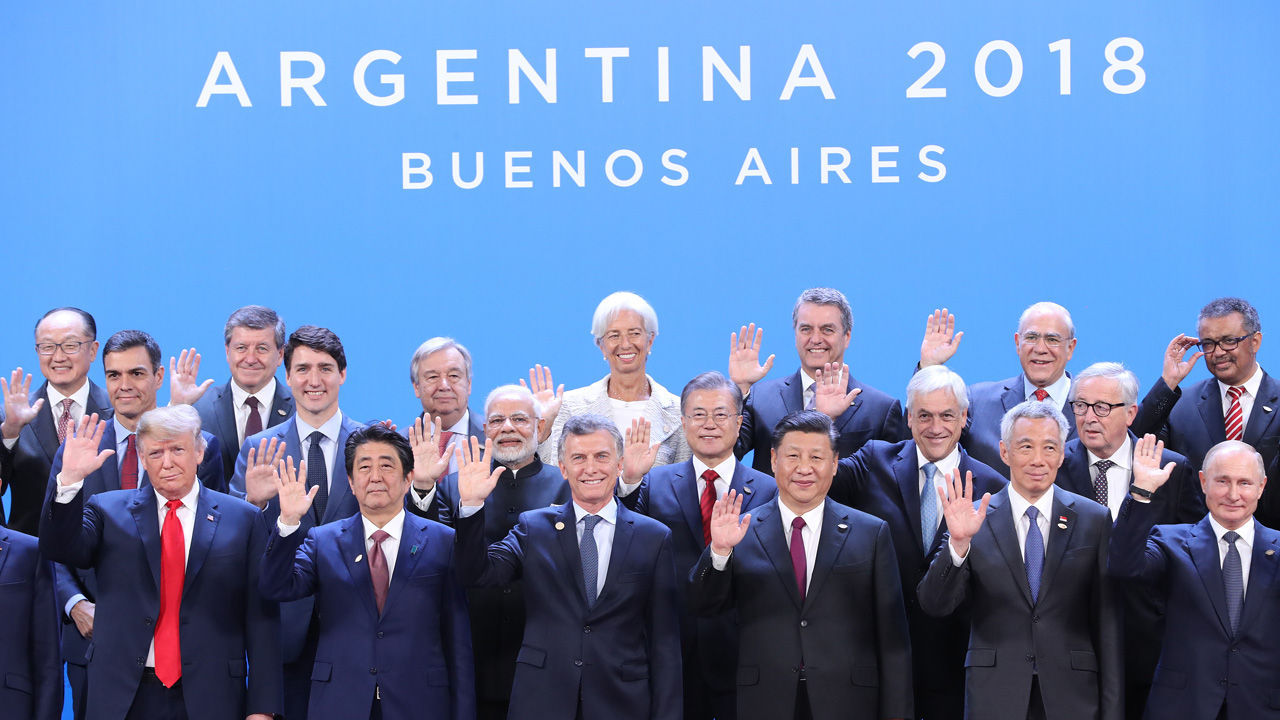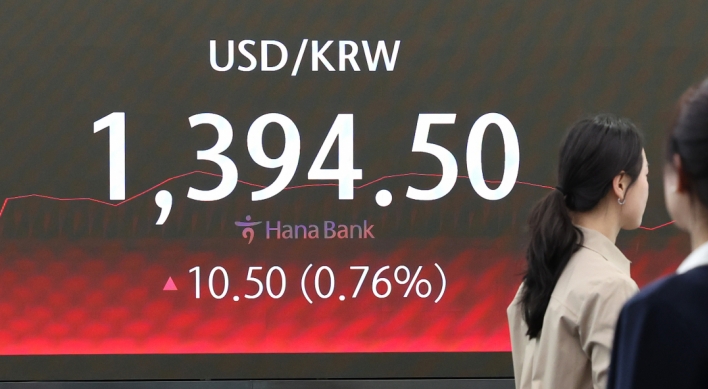[News focus] North Korea, historical issues hang over Moon as he heads to G-20 Summit
By Choi He-sukPublished : June 25, 2019 - 17:06
For President Moon Jae-in, the G-20 Summit -- set to be held in Osaka, Japan, later this week -- will be an opportunity to further his agenda on dealing with North Korea and to strengthen and mend ties with G-20 countries.
Moon has a number of bilateral summit talks scheduled on the sidelines of the event, including meetings with leaders of Canada, China, Indonesia and Russia.
Moon has a number of bilateral summit talks scheduled on the sidelines of the event, including meetings with leaders of Canada, China, Indonesia and Russia.

The meetings with Chinese and Russian leaders come at a critical point, as Moon hopes to establish permanent peace on the Korean Peninsula and to expand South Korea’s economic reach to the north of the peninsula.
In addition, Moon is set to meet US President Donald Trump in Seoul after the G-20 summit.
Korea-China: Xi messenger for North Korea’s denuke plan
A key agenda item of the South Korea-China summit will be the results of Chinese President Xi Jinping’s first state visit to Pyongyang last week, according to a Cheong Wa Dae official.
With Xi set to meet Moon and Trump at the G-20 summit, analysts said North Korean leader Kim Jong-un may have asked the Chinese leader to pass on a message that could revive nuclear talks with the US.
Beijing’s Foreign Ministry spokesperson Geng Shuang said Monday that the country stands ready to strengthen coordination with Pyongyang and Washington as well as to contribute to regional peace and stability.
“President Xi Jinping just paid a successful visit to the DPRK, during which he had an in-depth and candid exchange of views with Chairman Kim on the situation in the Korean Peninsula and how to uphold the dialogue process,” he said during a press conference.
As over 40 percent of South Korea’s outbound shipments go to the US and China, Seoul will be keenly interested in whether the world’s two largest economies can resolve their trade dispute soon.
South Korea’s exports have dipped for six consecutive months as of May, with exports to China slipping for seven consecutive months. The impact would only grow larger if the tariff battle continues for a prolonged period.
Korea-Japan: Historic dispute leads to no Moon-Abe summit
President Moon will not hold a bilateral meeting with Japanese Prime Minister Shinzo Abe at the G-20 summit, a Cheong Wa Dae official said Tuesday, in an indication of deteriorating relations due to a longstanding row over Tokyo’s compensation of Korean victims of forced labor during World War II.
Seoul is ready for such a summit, but Japan does not seem to be, said the official.
According to Japanese media, Tokyo is considering an informal “pull-aside,” perhaps with President Moon and Japanese Prime Minister Shinzo Abe standing for a short talk.
It is unprecedented for South Korea to have no plans for a summit with the host country of the G-20 meeting.
The historical spat was rekindled as the Japanese government strongly protested a series of rulings by Seoul’s Supreme Court in 2018, which ordered Japanese companies to compensate Korean plaintiffs forced to work at factories and mines during Japan’s 1910-1945 colonial rule of the Korean Peninsula.
Joy Yamamoto, director of the US State Department’s Korea desk, raised concerns over the strained relationship and how it could negatively impact the denuclearization of North Korea.
“We’re not going to be successful in negotiating with North Korea unless those alliances are strong and that lasts,” she said during a forum hosted by the Center for Strategic and International Studies in Washington on Tuesday.
On June 19, Seoul’s Foreign Ministry proposed Japan jointly support the Korean victims by encouraging companies in both countries to take part in joint fundraising efforts but Tokyo rejected the proposal immediately.
Korea-Russia: New player in Korean Peninsula dynamics
Russian President Vladimir Putin has shown signs of taking a more direct role in North Korea issues in recent months.
In April, Putin held a summit with Kim, and called for multilateral dialogue on North Korean denuclearization. While stating that Moscow agreed on the need to fully denuclearize North Korea, Putin also backed Pyongyang’s claims that it needs security guarantees.
Although the US has rejected the idea of reviving six-party talks, Putin’s comments fanned speculation that Moscow’s role in North Korea issues would increase -- a development at least partially hoped for by Seoul.
During his meeting with Putin last year, Moon urged Moscow to play a bigger part in his plans for establishing permanent peace on the Korean Peninsula.
In addition to its influence on Pyongyang, Russia is a crucial part of Moon’s New Northern Policy, which, in tandem with the New Southern Policy, is a major pillar of Seoul’s diplomatic and economic initiatives.
The New Northern Policy aims to increase South Korea’s economic and political ties to countries to the north of the peninsula.
Korea-US: Allies with different agenda
After the G-20 Summit, Moon is set to hold his eighth summit with Trump in Seoul on June 30.
Trump’s visit comes amid a lull in US-North Korea dialogue, which, with the exception of letters exchanged between Trump and Kim, appears likely to continue. North Korea is likely to take up a significant portion of the South Korea-US summit, scheduled for Sunday.
Although both Seoul and Washington seek to achieve complete denuclearization of North Korea, the two countries have shown differences in their plans.
Conservatives here have accused the Moon administration of representing Pyongyang’s views by voicing a need for some sanctions on the North to be eased. The Trump administration, however, has remained firm on its maximum pressure campaign while engaging Pyongyang in dialogue and two summit meetings.
In addition, Trump has said several times that he is in “no hurry” to reach a conclusion in talks with the North. On the other hand, Moon appears to be running out of time.
Moon has set the denuclearization of North Korea as one of the main goals of his presidency, but little has been achieved so far, with Pyongyang refraining from intercontinental missile and nuclear weapons tests being the only major achievements of inter-Korean and US-North Korea dialogue.
By Choi He-suk and Park Han-na
(cheesuk@heraldcorp.com) (hnpark@heraldcorp.com)







![[KH Explains] How should Korea adjust its trade defenses against Chinese EVs?](http://res.heraldm.com/phpwas/restmb_idxmake.php?idx=644&simg=/content/image/2024/04/15/20240415050562_0.jpg&u=20240415144419)











![[Today’s K-pop] Stray Kids to return soon: report](http://res.heraldm.com/phpwas/restmb_idxmake.php?idx=642&simg=/content/image/2024/04/16/20240416050713_0.jpg&u=)